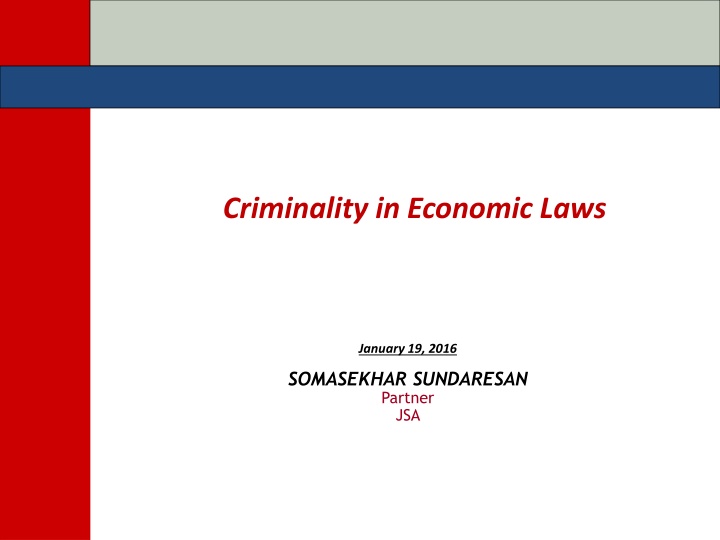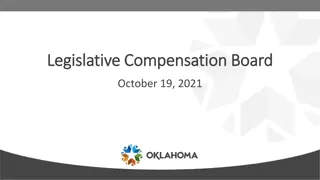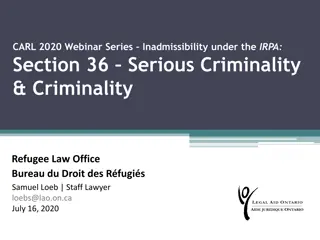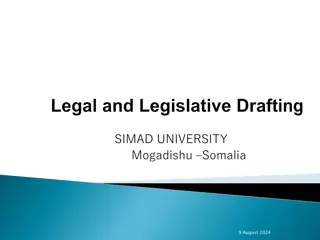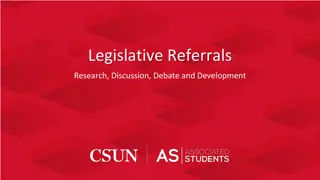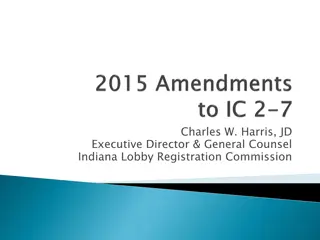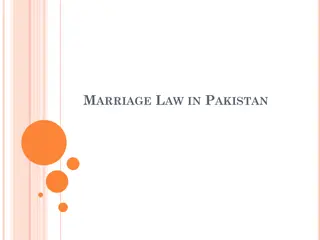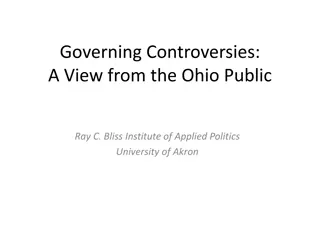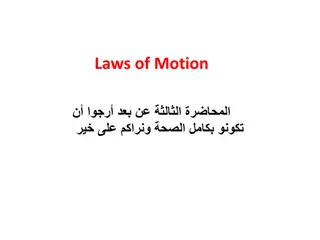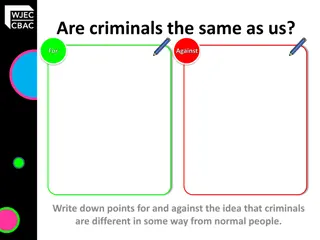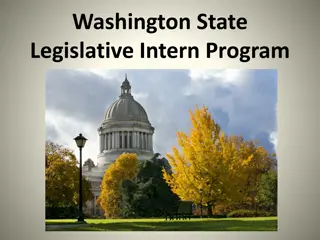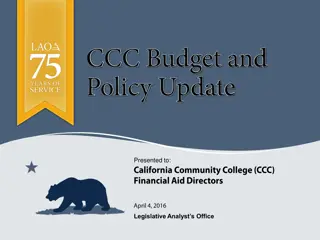Criminality in Economic Laws: Legislative Trends and Challenges
Indian economic laws increasingly rely on criminalization as a deterrent, leading to debates on state-business power dynamics, prosecution practices, and process issues. This article explores the impact of criminal laws in economic legislation, with a focus on Securities and Exchange Controls, as well as considerations of prosecuting agencies, bail restrictions, and public interest fraud.
Download Presentation

Please find below an Image/Link to download the presentation.
The content on the website is provided AS IS for your information and personal use only. It may not be sold, licensed, or shared on other websites without obtaining consent from the author.If you encounter any issues during the download, it is possible that the publisher has removed the file from their server.
You are allowed to download the files provided on this website for personal or commercial use, subject to the condition that they are used lawfully. All files are the property of their respective owners.
The content on the website is provided AS IS for your information and personal use only. It may not be sold, licensed, or shared on other websites without obtaining consent from the author.
E N D
Presentation Transcript
Criminality in Economic Laws January 19, 2016 SOMASEKHAR SUNDARESAN Partner JSA
CRIMINAL LAWS IN ECONOMICS Indian political economy entails legislating virtue Legislative disincentives are thought as solutions Increasing emphasis on criminalizing misconduct State capacity constraints not always factored in Virtually every business law is criminal law Criminal prosecution powers are seldom used Political leverage for the State over business Every scam leads to clamour for greater powers Lack of debate leads to more severe penal laws 2
SECURITIES LAWS SEBI Act provides a good case study Section 24 criminalizes everything contravention of every single provision of the Act, rules and regulations Punishable with fine, imprisonment or both Typically, complainant can only be the regulator SCRA uses or by any person for complainant Ejudsem Generis may get applied Composition of offences not attracting prison 3
EXCHANGE CONTROLS Once, the ultimate criminal business law FERA presumed culpable mental state Criminality abolished in the 2000 Has made a re-entry in 2015 Prevention of Money Laundering Law List of Scheduled Offences enumerate every material economic law Legislation like COFEPOSA never repealed 4
PROCESS ISSUES Prosecuting agency to be the complainant Private complaint is often the regulatory order Stringent intervention in company law Section 212 enables arrest of suspects Bail prohibited for persons accused of certain offences Non-obstante provision to override CrPC Unless public prosecutor has opportunity to oppose Unless the court is satisfied of reasonable grounds to believe that accused did not commit the offence 21 non-compoundable offences Minimum term of 3 years for fraud involving public interest SFIO Report to be police officer report in CrPC SFIO investigation material can be freely shared 5
CLAMOUR FOR MORE SEBI almost got power of search and seizure powers without warrant Despite limitation on account seizure, it is rampant under Sections 11 / 11B Constitutional validity of freezing accounts not truly tested yet Future jurisprudence will determine contours of remedial and punitive powers 6
COUNTER-INTUITIVE USAGE Usage of criminal powers very low Need to convince an independent judge Civil restraints can inflict far greater injury Severe commercial debilitation can be achieved Higher standard of proof daunting Beyond reasonable doubt seen as beyond all doubt Preponderance of probability is easy to reduce to conjecture and surmise Will always be a question of fact and law for courts Parallel in the US in the example of Rajat Gupta Administrative proceedings vs. Criminal proceedings 7
Q&A somasekhar@jsalaw.com
